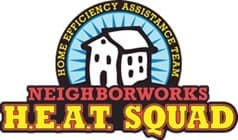NeighborWorks of Western Vermont: Impact Assessment
Cadmus’ research showed how Western Vermont’s H.E.A.T. Squad Program increased home energy retrofit uptake by 46 percent in Rutland County, Vermont.
Nonprofit organization NeighborWorks of Western Vermont (NWWVT) works to strengthen the regional economies of Rutland, Addison, and Bennington counties in Vermont. It does this by promoting safe and efficient housing and providing the community with homebuyer education, technical assistance, and financial services. Through its H.E.A.T. Squad Program, NWWVT helps customers improve their homes’ comfort and energy efficiency. H.E.A.T. Squad offers low-cost audits to homeowners who do not qualify for weatherization assistance, offers low-interest financing, and assists interested homeowners in accessing the Efficiency Vermont Home Performance Program for rebates. Primarily marketed through community outreach and grassroots communication, H.E.A.T. Squad takes a high-touch, hands-on approach to client support and emphasizes superior customer service.
Challenge
NWWVT received grant funding to implement the H.E.A.T. Squad Program from the U.S. Department of Energy’s Better Buildings Neighborhood Program, a program that helped more than 40 competitively selected state and local governments develop sustainable programs to upgrade the energy efficiency of homes and buildings. The H.E.A.T. Squad Program was granted funding over hundreds of competitors as a new initiative that used an innovative approach for encouraging homeowners to pursue energy-saving home weatherization retrofits.
While most other home retrofit programs funded through the Better Buildings Neighborhood Program focused on providing monetary incentives to encourage participation, NWWVT designed its H.E.A.T. Squad Program to employ high-touch customer engagement and community-based outreach. After implementing the program with grant funds, NWWVT needed to measure the program’s impact and cost-effectiveness to determine its effectiveness compared to other program strategies.
Solution
To measure the H.E.A.T. Squad Program’s impact, we surveyed 510 homeowners, including program participants and nonparticipants in NWWVT’s service area. We also interviewed staff members of the NWWVT H.E.A.T. Squad and Efficiency Vermont Home Performance with ENERGY STAR® programs, contractors who participated in the programs, representatives of funding agencies, and other program stakeholders. To supplement the survey feedback, Cadmus also performed a cost-effectiveness analysis using program cost data.
Results
Cadmus’ findings helped NWWVT better understand the strengths and performance of H.E.A.T. Squad and promote it to their customer base. In particular, NWWVT used the following findings to garner support and attention for its program:
- Customers who received NWWVT program messaging were 46 percent more likely to install energy-efficiency measures than those who participate in an Efficiency Vermont program without H.E.A.T. Squad’s support. Lower-income households alone were 164 percent more likely to install energy-efficiency measures.
- The H.E.A.T. Squad program achieved a benefit cost ratio of 1.72, indicating that every dollar invested in the program resulted in $1.72 worth of benefits.
- When analyzed together, H.E.A.T. Squad and Efficiency Vermont’s Home Performance Program combined achieved a benefit cost ratio of 2.03.
In fact, these findings also helped NWWVT gain credibility with the public: the H.E.A.T. Squad was featured on National Public Radio’s Morning Edition, and the reporter cited Cadmus’ findings to describe the program’s success.
Learn more about our outstanding support for evaluation and research.
“Cadmus’ articulate, careful, and thorough analysis of our housing agency’s efficiency program allowed us to build credibility and effectiveness in the energy arena.” – Ludy Biddle, Executive Director, NeighborWorks of Western Vermont
